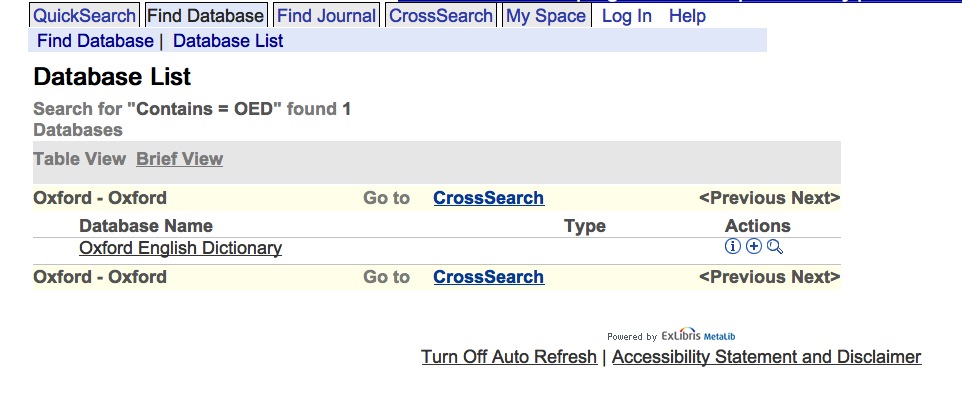
To save time for class discussion of the readings and / or films, I have put these policies online.
If you skip class, you won't pass. This class cannot work unless you want to be here.
In other words, if you're going to be here, you really have to be here.
Therefore, in order to really be here, you have to want to be here.
In short, if you are going to be here, you really have to be here.
If you want to be in this class, you have to be in it.
Therefore:
If you are late to class, or if you leave during class, or if you leave class early, I count you as absent. You are allowed two absences without excuse or penalty. If you miss three or four classes, I reserve the right to lower your final grade in the course at will. If you miss more than four classes, even if they are excused, you fail the class.
If you have a cell phone with you during class, please turn it off (not on vibe, but off).
I take silent roll for each class. If you don't turn in the discussion questions and "big words" (when they are due), I will count you as absent.
To repeat: If you want to be in this class, you have to be in it. In short, if your ambition is only to get a "C" in this course, you should not take it.
Two students will co-lead class discussion each class.
Missed quizzes may be not be made up.
Late work may not be made up.
Assignment (two-parts) for each class:
FOR STUDENTS IN LIT 4930 COURSES TU/T:
Two discussion questions, numbered 1 and 2 and with your name at the bottom of the document, on each assigned reading or film are due by 5 p.m. on Mondays. And two discussion questions, numbered 1 and 2, on each assigned reading or film are due by 5:00 p.m. on Wednesdays. Email your questions in one word document (as an attachment) to me.

B. BIG WORDS (at least 3) defined :
Many of the readings will be difficult, partly because the vocabularies the writers use contain technical terms you probably won't know as well as "big words" you may not know. Since you can easily go to wiktionary to look up the meanings and etymologies of words you don't know, I ask that you include at least three words you had to look up with your discussion questions. That will help everyone in the class. And since this is an English class, you should want to expand your vocabulary, no? :) Words also have histories.
If you reading a text online, you may right click a word and look it up.

You may also want to consult the Oxford English Dictionary online through UF.
1. Got to Databases and type in "OED" and then hit "Find."

You will get to this page. Double click on "Oxford English Dictionary."

You will get to OED at this page, where you can look up words of interest.

Assignment for each class: Two discussion questions, numbered 1 and 2 and three or more Big Words, with your name at the bottom of the document, on each assigned reading and film are due by 5 p.m. on Mondays and two discussion questions, numbered 1 and 2 and Big Words, on each assigned reading are due by 5:00 p.m. on Wednesdays. Email your questions in one word document (as an attachment) to me.
BIG WORDS AND CRITICAL TERMS (JARGON):
Many of the readings will be difficult, partly because the vocabularies the writers use contain technical terms (jargon) you probably won't know as well as "big words" you may not know. Since you can easily click on a word and look it up in a dictionary or go to wiktionary to look up the meanings and etymologies of words you don't know, I ask that you include at least three words you had to look up with your discussion questions. That will help everyone in the class. And since this is an English class, you should want to expand your vocabulary, no? :)
Long Version:
1. Preparation for class discussion. The price of admission to class is to bring a print or electronic copy of the readings with you to class. That means you will need to bring the original or a xerox. The readings are your ticket. I will ask you to take them out at the beginning of class. A paper copy is notnecessary. Kindles and pdfs on computers are valid. You need to bring a copy of the assigned articles or book to class the day we are discussing it in detail, reading it closely. If you don't have a copy you cannnot effectively participate in class. Therefore, you must have a copy to be counted as present. Since we'll be talking about the readings in some detail, you'll need to be able to turn to the page or scroll you device to the passage we're discussing.
2. Discussion questions. If you don't turn in the discussion questions and BIG WORDS or three film shots, I count you as absent. In addition to writing the DQs, I ask that you write any "big" words you had to look up and their definitions. Depending on your vocabulary, you may need to look up a lot of words or only one or two. DQs without "big" words and their definitions will not count as passing work.
3. Lateness: If you come late to class, I count you as absent. If you are taking a class that begins at 8:30, make sure you get up early enough to make it class on time. If you are thiking of taking a bus that may be late from time to time, take an earlier bus. Think of arriving to class as you would arriving for an airplane flight. Get there early or you will miss the class, just as you miss yor flight if you arrived late. I have adopted this policy because a late arrival is a disruption of the class (as is sleeping in class). By the third week of the semester, if you are one second late or twenty minutes late or any other amount of time late, the penalty you meet will be the same: an "E" in the course.
4. On two period class days, I will sometimes have us take a brief break (a minute or two) in the middle of class. If you have not made a reasonably valuable comment on the readings by then, I will ask you to go home rather than remain an uninspired bump bringing the mood of the class down. By "reasonably valuable comment" I mean a comment that make dense in he context of the discussion. Talking just to blurt out an irrelevant comment is not valuable. You will not receive better than a "C" in the course if you do not attend and participate in class. So even if all your written work is "A" level (or "B") but you have not participated in class discussion, you will receive a "C" for the course.
5. Attendance: Class attendance and participation are crucial to the success of this course. By "attendance" I mean not only being in class, but includes completing the assigned work for each class by the time it is due and arrving to class on time. (If you arrive late to class or if don't do the discussion questions, you are counted as absent.) By participate, I mean attend class, do the discussion questions, and speak up usefully in class so that a given conversation moves forward. Talking but not adding anything is not participating. You can participate by bringing up a topic, adding to someone else's point, or disagreeing, among other ways. Just making random comments that lead us nowhere does not count as participartion. If, in addition to not participating, you don't turn in written work, you will not pass the course. I take attendance, and late arrivals will be counted as absent. After the first few classes, when I have learned your names, I will take roll silently in class instead of taking it aloud.
You may miss two classes for whatever reason without offering an explanation to me. If you are absent one time or two times, in other words, do not give me an excuse. None is needed and none will be heeded. Missing more than two classes (for whatever reason) may result in a reduction of your final grade for the course, the degree of the reduction to be determined by me at my discretion (depending on the circumstances, I may not lower your final grade at all or I may lower your final grade to an "E"). Missing four classes (or more) means either that you need to withdraw from the course or that, if you do not withdraw, you will get an "E" as your final grade.